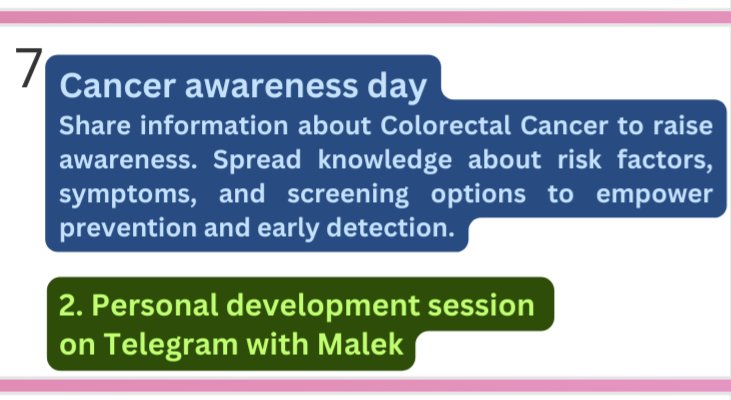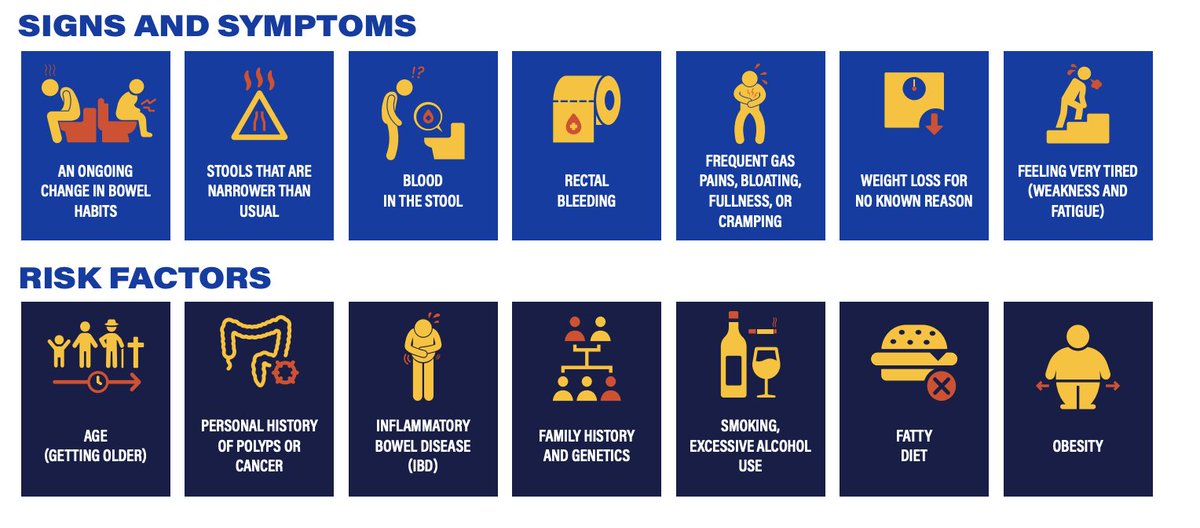Hope you're all doing fantastic. Happy belated anniversary to us! It's been a year since we launched on the blockchain and almost two years since we've been in your hearts. In this newsletter, we're going to take a look at how we celebrated this milestone, offer a glimpse of our recent event on March 8th, share our exciting journey to Times Square, and most importantly, delve into the critical topic of kidney cancer.
What is Kidney Cancer?
Kidney cancer, also known as renal cancer, originates in the cells of the kidney. The predominant form of kidney cancer is renal cell carcinoma (RCC), constituting approximately 90% of cases. Typically, only one kidney is impacted, although there are instances where cancer may manifest in both kidneys.
Less frequent types of kidney cancer include:
Urothelial carcinoma, also referred to as transitional cell carcinoma, which may originate in the ureter or renal pelvis where the kidney and ureter intersect. Treatment approaches for this type are akin to those used for bladder cancer.
Wilms tumor, primarily affecting younger children, although it remains rare.

Symptoms of kidney cancer
Often remain absent in its early stages. However, as the disease progresses, individuals may experience:
Hematuria (blood in the urine) or frequent urination, particularly at night. Urine may exhibit a dark, rusty, or brownish hue.
Persistent pain or a dull ache in the side or lower back, unrelated to any injury.
Palpable lump or mass in the abdomen.
Unexplained and persistent fatigue.
Rapid and unintended weight loss.
Fever not attributed to a cold or flu.
These symptoms can occur with other illnesses and so they don’t necessarily mean you have kidney cancer. If you have any concerns, contact your doctor.
Causes of Kidney Cancer
The exact cause of kidney cancer is often unclear, but several factors may increase the risk of developing the disease:
Smoking: Cigarette smoking is a significant risk factor for kidney cancer. Smokers have a higher likelihood of developing kidney cancer compared to non-smokers.
Obesity: Being overweight or obese increases the risk of kidney cancer. This is particularly true for individuals with excess abdominal fat.
High blood pressure (hypertension): Chronic hypertension is associated with an increased risk of kidney cancer.
Family history: A family history of kidney cancer or certain inherited conditions, such as Von Hippel-Lindau (VHL) disease, hereditary papillary renal cell carcinoma, or Birt-Hogg-Dubé syndrome, can elevate the risk of developing kidney cancer.
Age: The risk of kidney cancer increases with age, with most cases diagnosed in individuals over the age of 45.
Gender: Men are at a higher risk of developing kidney cancer compared to women.
Certain occupational exposures: Exposure to certain chemicals and substances in the workplace, such as asbestos, cadmium, organic solvents, and certain herbicides, may increase the risk of kidney cancer.
Chronic kidney disease: Individuals with long-standing chronic kidney disease (CKD) are at a higher risk of kidney cancer.

Being tall INCREASES the risk of kidney cancer (the taller a person is, the greater his or her risk of kidney cancer)

Consuming drinking water that contains arsenic might increase the risk of kidney cancer.
Diagnosis of Kidney Cancer
Diagnosing kidney cancer typically involves a combination of medical history review, physical examination, imaging tests, and sometimes, biopsy. Here's an overview of the diagnostic process:
Medical history and physical examination: The doctor will ask about symptoms, risk factors, and personal and family medical history. A thorough physical examination may also be conducted to check for any signs of kidney cancer.
Imaging tests: Various imaging tests are used to visualize the kidneys and detect any abnormalities. These may include:
Ultrasound: This imaging technique uses sound waves to create images of the kidneys and surrounding structures.
Computed tomography (CT) scan: CT scans provide detailed cross-sectional images of the kidneys and can help detect tumors.
Magnetic resonance imaging (MRI) scan: MRI scans use powerful magnets and radio waves to create detailed images of the kidneys and nearby tissues.
Intravenous pyelogram (IVP): This test involves injecting a contrast dye into a vein, which helps visualize the urinary tract, including the kidneys, ureters, and bladder, on X-ray images.
Biopsy: In some cases, a biopsy may be performed to obtain a tissue sample from the kidney for examination under a microscope. This is usually done if imaging tests suggest the presence of a kidney tumor, and the biopsy helps confirm the diagnosis of kidney cancer and determine its type and aggressiveness.
Blood and urine tests: Blood tests, such as a complete blood count (CBC) and blood chemistry tests, may be performed to assess kidney function and look for signs of abnormalities. Urine tests may also be done to check for blood or other substances that may indicate kidney cancer.
Staging: Once kidney cancer is diagnosed, additional tests, such as chest X-rays, bone scans, and other imaging studies, may be performed to determine the extent (stage) of the cancer and help guide treatment decisions.
Treatment for Kidney Cancer
The treatment for kidney cancer depends on several factors, including the stage of the cancer, the patient's overall health, and their personal preferences. Here's an overview of the treatment options for kidney cancer:
Surgery: Surgery is often the primary treatment for kidney cancer, especially if the cancer is localised and has not spread beyond the kidney. The main surgical options include:
Nephrectomy: This involves the surgical removal of part or all of the affected kidney. In a partial nephrectomy, only the tumor and a small portion of surrounding healthy tissue are removed, while in a radical nephrectomy, the entire kidney along with surrounding tissues and nearby lymph nodes may be removed.
Minimally invasive surgery: Techniques such as laparoscopic or robotic-assisted surgery may be used to remove kidney tumors with smaller incisions, resulting in faster recovery times and less postoperative pain.
Ablation therapy: For smaller kidney tumors or patients who are not suitable candidates for surgery, ablative techniques such as radiofrequency ablation (RFA) or cryoablation may be used to destroy cancer cells using heat or cold.
Targeted therapy: Targeted therapy drugs, such as tyrosine kinase inhibitors (TKIs) and immune checkpoint inhibitors, may be used to treat advanced or metastatic kidney cancer. These drugs work by targeting specific molecular pathways involved in cancer growth and spread.
Immunotherapy: Immunotherapy drugs, such as interleukin-2 (IL-2) and immune checkpoint inhibitors like nivolumab and pembrolizumab, may help boost the body's immune response to attack cancer cells.
Radiation therapy: Radiation therapy may be used to relieve symptoms or treat specific areas of cancer spread (metastases) in advanced kidney cancer cases. It is less commonly used as a primary treatment for kidney cancer.
Clinical trials: Participation in clinical trials may be an option for some patients, especially those with advanced or recurrent kidney cancer who have not responded well to standard treatments. Clinical trials offer access to new treatments and therapies that are still being studied for their effectiveness and safety.
Preventing Kidney Cancer
While there is no guaranteed way to prevent kidney cancer, there are several steps individuals can take to lower their risk:
Quit Smoking: Smoking increases the risk of kidney cancer, so quitting smoking can significantly reduce the risk. Seek support from healthcare professionals or smoking cessation programs if needed.
Maintain a Healthy Weight: Obesity and being overweight are risk factors for kidney cancer. Adopting a balanced diet and engaging in regular physical activity can help maintain a healthy weight and reduce the risk.
Stay Hydrated: Drinking plenty of fluids, especially water, can help maintain optimal kidney health and may reduce the risk of kidney cancer. Aim to drink at least 8 glasses of water per day.
Limit Alcohol Consumption: Excessive alcohol consumption is associated with an increased risk of kidney cancer. Limit alcohol intake to moderate levels or avoid it altogether.
Eat a Balanced Diet: Consume a diet rich in fruits, vegetables, whole grains, and lean proteins. Limit intake of processed foods, red meats, and foods high in saturated fats and sugars.
Monitor Blood Pressure: High blood pressure (hypertension) is a risk factor for kidney cancer. Regularly monitor blood pressure levels and take steps to manage hypertension through lifestyle changes or medication as recommended by a healthcare provider.
Control Diabetes: Individuals with diabetes have an increased risk of kidney cancer. Manage blood sugar levels through a healthy diet, regular exercise, and medication if prescribed by a healthcare provider.
Avoid Exposure to Harmful Chemicals: Limit exposure to environmental toxins and workplace chemicals that may increase the risk of kidney cancer. Follow safety guidelines and use protective equipment when working with hazardous substances.
Stay Active: Engage in regular physical activity to maintain overall health and reduce the risk of obesity, hypertension, and other risk factors associated with kidney cancer.
Regular Health Check-ups: Attend regular health check-ups and screenings as recommended by a healthcare provider. Early detection and prompt treatment of any abnormalities or risk factors can help prevent the development or progression of kidney cancer.
Not smoking or quitting smoking. Up to one third of kidney cancers are thought to be due to smoking.
Kidney Cancer Statistics
Kidney cancer ranks as the 14th most common cancer worldwide.
It is the 9th most common cancer in men and the 14th most common cancer in women.
In 2020, there were more than 430,000 new cases of kidney cancer reported.
If you want to tune in to our space on kidney cancer, listen to it here:
Baked Salmon with Dill Yogurt Sauce- a special and healthy food recipe
Tutti fam, our Frutti Chef, Gabriel, has whipped up something special for us: a delicious and nutritious recipe that's perfect for promoting overall health. As a 5-star chef in Slovakia, Gabriel's passion for healthy food speaks volumes in every dish. If you've tried his delicious and nutritious Baked Salmon with Dill Yogurt Sauce recipe, let us know how it turned out!

Big shoutout to our incredible Tutti Fam for their outstanding efforts in raising awareness for Colorectal Cancer last Thursday! Your dedication, support, and engagement truly make a difference in spreading awareness and understanding about this important health issue. Together, we are making strides in educating others and promoting early detection.
Tutti Frutti Women Lights Up Times Square and WIT Metaverse
On March 8th, Tutti Frutti Women experienced two incredible milestones that we're still buzzing about! First, we were showcased on WIT in spatial.io metaverse, immersing ourselves in the virtual world and sharing our mission with a global audience. It was an unforgettable experience, connecting with people from all corners of the world and spreading awareness about our cause in a unique and innovative way.

But the excitement didn't stop there! Later that same day, we made our debut on Times Square, marking a monumental moment in our journey. Seeing our bold and beautiful warrior illuminated amidst the vibrant lights of New York City was truly surreal, and it's a memory we'll cherish forever.
These milestones are a testament to the incredible support and dedication of our Tutti Fam. Your unwavering commitment empowers us to continue pushing boundaries and making a difference in the fight against cancer. Thank you for being a part of our journey and for helping us shine bright on the global stage!
Our Anniversary Celebration
Yesterday, we celebrated the first anniversary of Tutti Frutti Women on the blockchain with an amazing Twitter Space. We had an amazing time with meaningful conversations, karaoke, and even a giveaway! If you missed out, don't worry! You can catch the recording here:
I just want to take a moment to express my heartfelt gratitude for your unwavering support and love. Everything we do, we do it together, and every achievement is a community achievement. Here's to many more incredible moments together!
NFT NYC 2024
Tutti Frutti Women will be showcased at NFTNYC on April 3rd, 2024, at North Javits, NYC! Can you believe it? We're thrilled to be part of this incredible event where we'll get to share our journey and mission with even more people. And that's not all – keep an eye out because you might just see us featured on the event tickets too! Let's make the most of this amazing opportunity and spread our message far and wide!

Warrior Spotlight
Tutti Fam, as you're aware, our TFW NFT minting initiative includes a special program to support cancer warriors. Thanks to your unwavering support, we've been able to stand by warriors like David and Donna. Now, it's time to rally around Rigel.
Rigel holds a special place in our community. Her journey battling colorectal cancer has been arduous, yet she now finds herself in remission. We've chosen to support Rigel because life after cancer is far from easy, especially during remission.
Currently, we're just 88 mints away from extending our support to Rigel. But there's more to it – reaching this milestone unlocks prizes for those who've backed us along the way. Let's come together once again and make a meaningful difference in Rigel's journey.
Contributing to the SHIB Ecosystem
Having reached our previous milestone of 100 mints, we proudly burned 1% of our NFTs proceeds in $SHIB, fulfilling our commitment to contribute to the SHIB ecosystem. However, given the soaring gas fees on the Ethereum blockchain, we've made the decision to adjust our strategy. Moving forward, we'll be burning $SHIB each time we hit the 500 mints mark. This shift allows us to continue supporting the SHIB community while navigating the challenges posed by gas fees. Thank you for your continued support as we strive to make a positive impact together.

Final thoughts:
We want to express our heartfelt gratitude for joining us on this journey. It's been an exciting and rewarding experience, and we're grateful for the support, dedication, and enthusiasm of our Tutti Fam every step of the way. Together, we've raised awareness, supported cancer warriors, celebrated milestones, and made a positive impact in the world.
As we look ahead, let's continue to stand together, support one another, and thrive as a community. Together, there's no limit to what we can achieve. Thank you for being part of the Tutti Frutti Women family. Here's to many more meaningful moments and successes ahead. Cheers to us, and let's keep shining bright!

Please note: The information provided in this newsletter is for general informational purposes only. It is not a substitute for professional medical advice, diagnosis, or treatment. Always seek the advice of your qualified health provider with any questions you may have regarding a medical condition.






 17
17


 1/9:
1/9:












